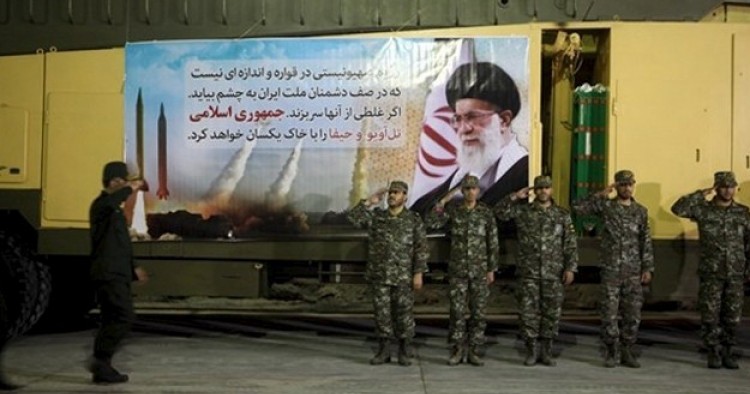A senior Iranian military official has dismissed Washington’s latest warnings as empty threats and argued that the Islamic Republic has “defeated” attempts by the United States and its allies to topple the regime of Iran’s ally Bashar al-Assad in Syria. “We shouldn’t pay attention to the hue and cry of Americans and their new president because we defeated them when they were at their peak of power,” said Brigadier General Ramazan Sharif, the head of the public relations directorate of the Islamic Revolution Guards Corps (I.R.G.C.). He further claimed Iran’s growing military power has reached its zenith, and that Iran's military has the ability “to target enemies in distant regions.” The I.R.G.C. official also boasted that while the Islamic State has destabilized the West, it has been unable to create any problems inside Iran. Separately, Brigadier General Mohammad Pakpour, the chief commander of the I.R.G.C.’s Ground Forces, warned Washington not to underestimate Iran’s military capabilities. “The enemy must not make a mistake in its calculations. But if it makes a mistake, it will receive a strong slap in the face,” he said.
Comment: The top I.R.G.C. officials’ remarks indicate that the Islamic Republic has no intention of defusing escalating tension with Washington and is only doubling down on its defiance of international demands to curb its controversial missile activity and stop its support for terrorism. Pakpour made the provocative remark today as the I.R.G.C. concluded three days of military drills in central and eastern regions of the country by test-firing “advanced” rockets – just weeks after the Trump administration put Iran “on notice” for launching a medium-range ballistic missile, which Washington says violated the U.N. Security Council Resolution 2231.
Furthermore, Iran’s leaders regularly try to justify their involvement in deadly conflicts in neighboring countries by arguing that they have to fight the United States, Israel, Sunni Arab states and terrorist groups such as the Islamic State abroad in order to prevent them from creating security problems inside Iran. But the regime’s propaganda campaign has largely been a failure as Iranians increasingly criticize the government for engaging in foreign wars at the expense of domestic priorities. According to a recent opinion survey, support for the regime’s involvement in the Syrian conflict has plummeted from 90 percent in 2014 to 24 percent in late 2016. Last week, demonstrations in the Iranian province of Khuzestan over environmental issues turned into an angry protest against the regime’s role in the Syrian war, as protesters derided the government for neglecting Iranians’ socioeconomic problems.
While the Iranian government has supported terrorist and militant groups across the region since the beginning of the Islamic Revolution in 1979, it is the first time since the Iran-Iraq war in the 1980s that the Iranian military forces are directly involved in conflicts outside the country’s border.
The Middle East Institute (MEI) is an independent, non-partisan, non-for-profit, educational organization. It does not engage in advocacy and its scholars’ opinions are their own. MEI welcomes financial donations, but retains sole editorial control over its work and its publications reflect only the authors’ views. For a listing of MEI donors, please click here.












